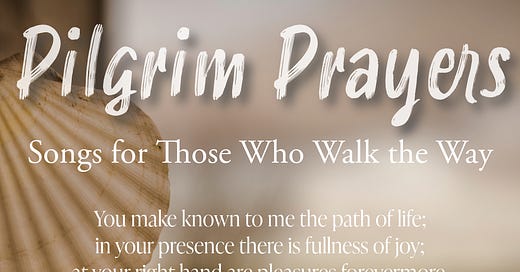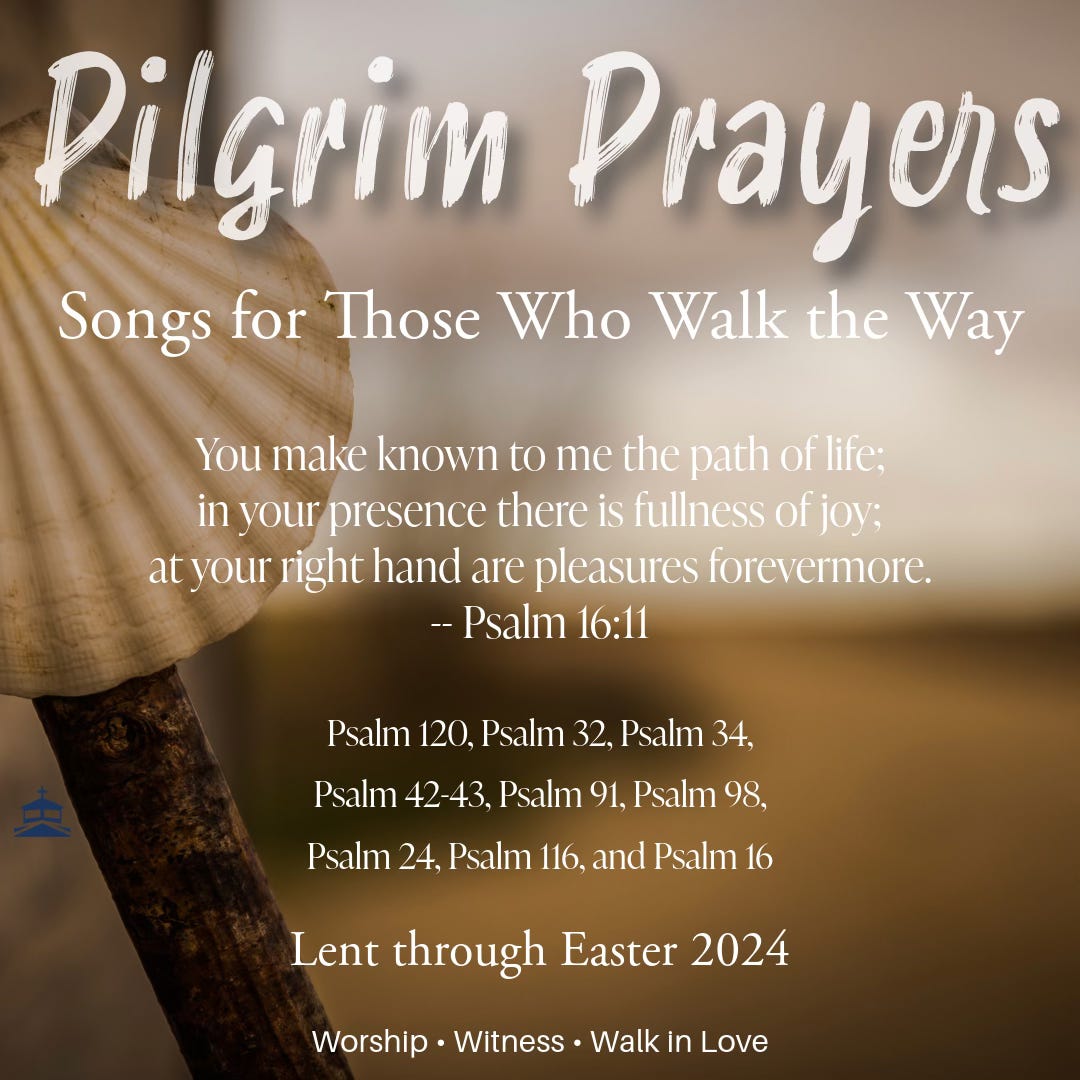Introduction. This evening is a service of shadows called after that word, tenebrae. We continue to remember the work and words of Jesus through the events of his last words as recorded in the gospel accounts. One of those words is his cry from the cross, “My God, my God, why have you forsaken me?” These words of Jesus were first recorded by King David during a season of great distress. A notation is included in the title to let the choirmaster know that it is to be sung, “according to The Doe of the Dawn.” To me that sounds a bit incongruous for such a psalm at least for verses 1-18—perhaps it might from verses 19-31.
The only other “dawn” song which David wrote is Psalm 57. In the title of psalm 57, we also have a note for the choir director and in it we have a circumstance and tune that may be more appropriate for the first part of this Psalm. Psalm 57’s title reads, “To the choirmaster: according to Do Not Destroy. A Miktam of David, when he fled from Saul, in the cave.” The circumstances of writing could be the same. In Psalm 57, David says of those who are trying to capture him (Psalm 57:8-8), “They set a net for my steps; my soul was bowed down. They dug a pit in my way, but they have fallen into it themselves. My heart is steadfast, O God, my heart is steadfast! I will sing and make melody! Awake, my glory! Awake, O harp and lyre! I will awake the dawn!”
Even as David promises to “awake the dawn” with the song of his praise, the Lord is faithful and hears David’s cry. In Psalm 22, the first part of which sounds like a ‘destruction song’ if ever there was, we have contained in the the words of a prophetic inventory – words that were written a thousand years earlier about something which if we listen carefully…if we heed David’s instruction, they will resound in our hearts not as a destruction song but as a gentle surprise of beauty and the newness of mercy one experiences in the surprise of coming upon a deer in the morning mist.
Before I read Psalm 22:1-18, let me pray that the Lord would tune our ears that we might hear the surprise and beauty of the gospel.
Read Psalm 22:1-18. To the choirmaster: according to The Doe of the Dawn. A Psalm of David.
My God, my God, why have you forsaken me? Why are you so far from saving me, from the words of my groaning? O my God, I cry by day, but you do not answer, and by night, but I find no rest.
Yet you are holy, enthroned on the praises of Israel. In you our fathers trusted; they trusted, and you delivered them. To you they cried and were rescued; in you they trusted and were not put to shame.
But I am a worm and not a man, scorned by mankind and despised by the people. All who see me mock me; they make mouths at me; they wag their heads; “He trusts in the LORD; let him deliver him; let him rescue him, for he delights in him!”
Yet you are he who took me from the womb; you made me trust you at my mother’s breasts. On you was I cast from my birth, and from my mother’s womb you have been my God. Be not far from me, for trouble is near, and there is none to help.
Many bulls encompass me; strong bulls of Bashan surround me; they open wide their mouths at me, like a ravening and roaring lion.
I am poured out like water, and all my bones are out of joint; my heart is like wax; it is melted within my breast; my strength is dried up like a potsherd, and my tongue sticks to my jaws; you lay me in the dust of death.
For dogs encompass me; a company of evildoers encircles me; they have pierced my hands and feet— I can count all my bones— they stare and gloat over me; they divide my garments among them, and for my clothing they cast lots.”
Though all of the Scriptures testify to the identity and mission of the Son of Man, Psalm 22 is particularly specific about his crucifixion.
Firstly, we have the words which Jesus cries from the cross. It is sometimes said that Jesus was so steeped in the Word of God, that when he was squeezed what came out was God’s word. It certainly is the case here. The ironic question is, Which came first? Consider it, the Word who gave through inspiration words to David to express his own grief and distress become the words by which the Word of Life speaks the words of David in the midst of His own distress. “My God, my God, why have you forsaken me? Why are you so far from saving me, from the words of my groaning?” Since Jesus is quoting it is not a surprising coincidence. It is, on Jesus’ part, a declaration. He is saying to all who are looking to the cross, look at the Son of David. He will suffer the afflictions of the first 18 verses so that his people might enjoy the deliverance of the second half of Psalm 22.
Secondly, we have the mocking of Jesus by His enemies and His skeptics. “All who see me mock me; they make mouths at me; they wag their heads; “He trusts in the LORD; let him deliver him; let him rescue him, for he delights in him!” Though Jesus is employing David’s words to describe his own suffering, those who are mocking him at the foot of the cross misunderstand what he is saying and believe he is crying out for Elijah to save him. Friends, this Jesus is the one whom Elijah saw on Mount Horeb from whom he heard the still small voice. Maybe that voice is still and small, like a “doe of the morning.” At any rate, Jesus’ enemies at the foot of the cross, say, “Let’s see if God will save him” not realiing that in his hanging there on the cross, hangs all our hope for forgiveness and redemption.
Thirdly Jesus thirsts. (Verse 14) “I am poured out like water, and all my bones are out of joint; my heart is like wax; it is melted within my breast; my strength is dried up like a potsherd, and my tongue sticks to my jaws; you lay me in the dust of death.” This is the thirsting of one who dwells in the Wilderness and the Desert. There is no sweet water from a rock, but there is only bitterness and gall. Jesus is bearing the judgment of their own mocking and is experiencing a thirst he has not experienced up to this point. He has experienced what it is like to be separated from the fount of love and life and peace. Jesus says from the cross, “I thirst.” Jesus is alone and is cast into the Wilderness as a scape goat.
Fourth, we read about the specific wounds of Jesus’ crucifixion. “...dogs encompass me; a company of evildoers encircles me; they have pierced my hands and feet.” You have heard, I think, about the cruelty of crucifixion. The Assyrians invented it, but the Romans perfected it. Crucifixion was such an unfathomably shameful and painful way to die that no Roman citizen was allowed to be executed that way. One Roman philosopher, Celsius, stated that Jesus’ crucifixion was proof that he wasn’t a Divine Savior. That the Son of God would die, and by crucifixion was for Celcius, a self-contradiction. It beggared belief.
And lastly, we read of the value which those who witnessed the suffering of the Son of David placed in his sacrifice. We read, “they divide my garments among them, and for my clothing they cast lots.” Again, this is clearly prophetic. Not only does it predict, but it exposes the worth the world places in the values of the citizens who are members of the Kingdom of Heaven. All that they are good for is what we can get from them at there death. And there it ends. Stripped of his garments, Jesus dies naked and alone. To the world he had nothing more to give those watching his crucifixion after the entertainment of his suffering ended but the clothes he left behind. In the world’s eyes, everything is finished at death, and all that can be gained in it, is what you can get from what the dead leave behind.
In Mark’s gospel we read of one of the centurion executioners who, watching how Jesus died, said, “Truly this man was the Son of God.” It seems he saw something more.
Conclusion. How much more will they see if they see him on the first day of the next week? In the suffering and crucifixion of Jesus Christ, we see that this was the mission of God all along. God’s love is so great that in the cross we see the full extent of his love. We see it in what was sacrificed, but even that, is not the full extent of his love because his love continues in that he lives, and we carry forward that love as we share in the fellowship of his sufferings and fill up what was lacking in Christ’s afflictions.
As we continue, let’s remember the full extent of his suffering, but let us do so remembering that the Destroyer who came to take Jesus to the grave, will give way to the music of salvation which awakes the dawn. The beautiful poetic irony of the gospel is that the shameful cursed death of the cross becomes the means by which God undoes the curse and death itself. The gospel, when we rightly apprehend it, always breaks open in our hearts with surprise and wonder like meeting a deer on a morning walk.





